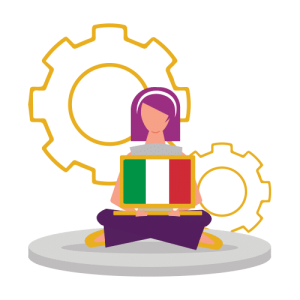
Female entrepreneurship in Italy
[vc_row][vc_column][vc_column_text]From a report on female entrepreneurship in Italy, edited by Unionacamere and presented at the end of July, it emerges that there are 1.340.000 companies led by women. These companies, which are 22% of the total, have grown at a much more intense pace over the last 5 years than the male ones. Basically, female businesses contributed to as much as 75% of the overall increase of all businesses in Italy. Although still strongly concentrated in the more traditional sectors, women’s businesses are growing above all in more innovative sectors and with a greater intensity than men’s businesses. This is the case of scientific and technical professional activities and IT and telecommunications.

The group that edited the report noted that among the winning companies (companies with the highest levels of investment in innovation and internationalization), those that have inclusive models are the ones that do better, in arguing that companies with a careful management of diversity and inclusion are those that have a greater economic return.
The vice secretary for Economic Development underlined three main aspects. The first concerns incentives to businesses in the form of loans and contributions, with an action in favor of female startups. In this context, he argues that the evaluation of Law 215/92 should be resumed with particular attention to innovation and digitization, central themes for the competition of companies and for the quality of economic growth, female participation leads to better growth. The second aspect concerns the cultural awareness to make society understand the value of the female enterprise. The actions carried out in other European countries can be taken as an example. The third concerns technical assistance actions for female entrepreneurs to help them do business through hubs and in close contact with the Regions and the chamber of commerce system.
The Minister for Equal Opportunities argued that female entrepreneurship is one of the strategic sectors to be promoted, both for the development of the country and for the achievement of full female empowerment also in work context. The department is working on three main assets: access to credit and financial training, a national digital training plan, with particular attention to the sectors and categories of female entrepreneurs, who are most excluded from such training courses, incentives to promotion among female businesses and sharing of welfare and reconciliation tools between family and work life.
[/vc_column_text][/vc_column][/vc_row]



